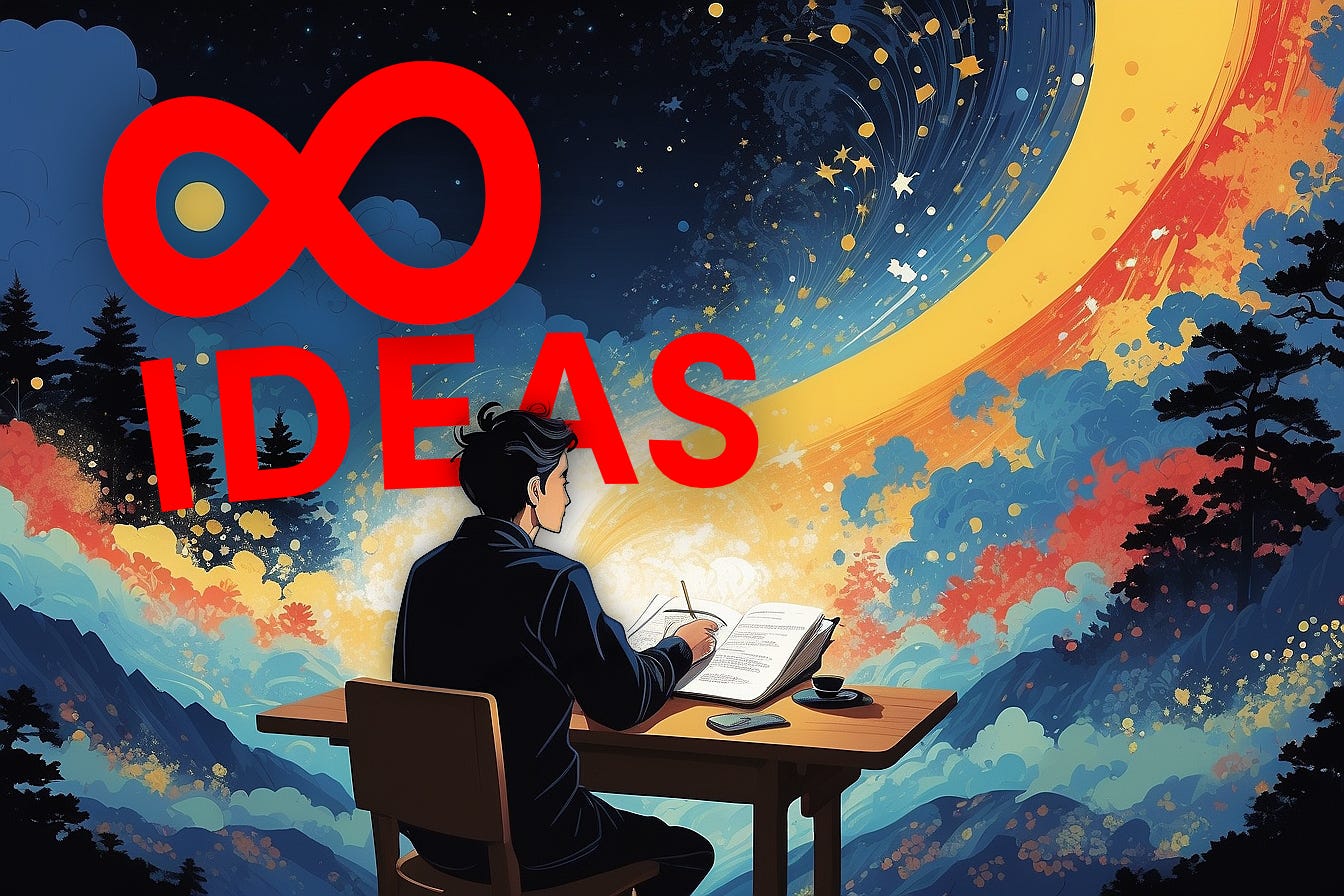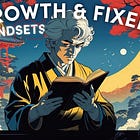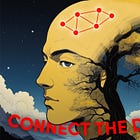How to Generate Infinite Ideas (And Why You're Probably Doing It Wrong)
The actual process I use to never run out of ideas. Ever.
As you read this, your brain is processing thousands of inputs.
Conversations, observations, random thoughts, connections between concepts you consumed yesterday and experienced today.
Most of it gets lost.
But what if I told you that within this noise are content ideas that you couldn’t create in a lifetime?
In this Free Mind Bullet:
Consumption/creation balance.
My process.
Few frameworks to use when your head is empty.
Practical tips to implement today.
Consumption/creation balance.
In the book “On Writing: A Memoir of the Craft”, Stephen King says that to become a good writer, you need to read a lot and write a lot. Shocking, I know. But I’ve seen people falling into one bias too many times not to mention this.
Those 2 types of creators look like that:
Information vacuum: They consume endlessly. Books, podcasts, courses. They become walking encyclopedias of other people's thoughts but never develop their own. They mistake learning for progress.
Creation desert: They stop consuming entirely, thinking they need to be original and practice more. They pump out content from an empty well, wondering why everything feels forced and shallow. Core thought to understand for this type: everything is a remix.
You can’t create without consuming, you can consume without creation, but ideas not put into reality become useless.
My process
I will provide you with a general sketch of what my process looks like and give you a few tips. But I have never had any problems with it. In fact, this post is the first time I’ve investigated my process.
Consumption: Audiobooks play a big role here. Whenever I clean my room or walk my dog, I have something playing in my earphones. Sometimes I don’t pay attention and stop playing to get lost in thoughts. Sometimes I’m so eager to know what will be next that I listen on 2x. Sometimes one particular line plants a seed, and the rough development of the idea forms in my mind. Then I stop and write it down (usually a sketch with keywords, like: somebody/nobody syndrome, mindset, timestamp). That way, I can get to it later, knowing what I meant. Remember: your mind is not for keeping ideas, but for inventing them.
Processing: I try to use every second to gather knowledge, but I also give myself time to process the information. That’s the most important step. In practice, that doesn’t mean taking any action in particular. You’ve filled your mind, now it filters things in the background and picks the best.
Driver: Based on what you are deeply immersed in at the moment, you will get different ideas. I look at everything I consume through the lens of newsletters, products, and posts. And you need a driver too. You need a magnet that will draw the small, relevant to you, pieces of information and put them together.
If you are a painter, you will get a composition idea after reading a descriptive part of a novel.
If you are a music producer, you will get a sample idea from hearing an old jazz song.
If you have a newsletter about online writing, one YouTube video lays a foundation that waits to be filled with your interpretation, perspective, and original tweaks.
I don’t designate any time to brainstorm. Ideas just strike at random times during the day, and I write them down immediately. If you think you are a dumbass who can’t think of anything, you will. Mindset plays a major role everywhere, and that’s not an exception.
If you perceive yourself as that kind of person, this is a must-read:
This is a free mind bullet. Upgrade your subscription to the Hyper Achiever tier for deeper dives and resource library access.
Few frameworks to use when your head is empty
Take any concept and flip the lens:
Business advice → Personal relationships: "Customer retention strategies" becomes "How to keep friends for decades"
Sports psychology → Content creation: "Mental preparation for athletes" becomes "Pre-publishing rituals that reduce anxiety"
Parenting techniques → Team management: "Setting boundaries with toddlers" becomes "Managing difficult employees"
Dan Koe does this constantly: Ancient Stoicism becomes modern productivity advice. Personal development becomes business strategy.
Most content focuses on solutions. Flip it:
Instead of "How to be productive" → "Why productivity advice doesn't work for creative people"
Instead of "Best morning routines" → "Why morning routines are killing your creativity"
Instead of "How to build habits" → "The habits that are secretly destroying your progress"
This framework comes from Nicolas Cole’s video. Check out his channel—good stuff.
Same topic in 10 ways:
Tips for buying your first piece of real estate.
Stats for buying profitable real estate in 2024.
Steps to buy your first rental property.
Lessons I learned buying my first short-term rental.
Benefits of buying real estate in your 20s.
Reasons everyone should own at least one rental property.
Mistakes people make when buying their first rental property.
Examples of real estate investors who made millions.
Questions most first time homeowners don't know to ask the seller.
Personal Stories (Ex. I'm Building My Local Real Estate Empire and Owning a Hundred Doors).
Time machine: Take current problems and solutions back/forward in time:
"How would Renaissance artists handle social media?"
"What would Stoics think about modern productivity culture?"
"How will AI change the way we think about creativity in 2030?"
Robert Greene mastered this: Laws in "48 Laws of Power" connects historical examples to modern applications.
Ladder: Take any topic up or down levels of abstraction:
Specific → General: "My experience with imposter syndrome" → "Why high achievers struggle with self-worth"
General → Specific: "The importance of systems" → "The 3-minute daily review that changed my life"
Tactical → Strategic: "Best note-taking apps" → "Why your second brain is making you stupid"
Question cascade: Start with one question, let it breed:
"Why do I procrastinate?"
"Is procrastination always bad?"
"What if procrastination is actually intuition?"
"When should you trust your resistance to a project?"
"How do you tell the difference between knowledge and wisdom?"
Each question becomes potential content.
And I want to address one stupid objection here: “What if I run out of ideas?”
You won’t. Never. Assuming you didn’t trap yourself in a very, very narrow field, there are enough things to explore for your whole lifetime and far beyond that.
Practical tips to implement today
Turn on the voice assistant on your phone. When I drive and can’t write things down, I use Google Assistant to make a short note for me. Nothing fancy, just the few most important words that will trigger my memory later when I look at it.
Keep something to take notes near your bed. Phone, notebook, piece of paper. Falling asleep is harvesting time for new ideas. My book was born that way. A whole idea I based the book on appeared in my brain when I couldn’t sleep.
Work even when your head is empty. Creative process breeds creativity. When you work, your brain puts together many layers and patterns. That creates ideas. Just now, writing that, I got an idea for a new product. Obviously, it’s already noted down as you are reading it.
Last but not least: Note down new ideas immediately.
Any suggestions? Give me feedback here:
To read next:
Link to the book is an affiliate.





